Caribbean Accreditation Authority for Education in Medicine and Other Health Professions
❗CAAM-HP's Response to the COVID Challenge
Meeting the COVID-19 Challenge
Background
has posed serious challenges for the operations of CAAM-HP and medical schools in the region. CAAM-HP was forced
to postpone several site visits which were scheduled for 2020/2021.
that requires effective learning management systems, video conferencing facilities and instructors experienced
in e-learning and assessment. Additionally, many schools reported that clinical students were forced to
discontinue their rotations in keeping with requests from affiliated hospitals in the USA and the Caribbean.
Another significant consequence of the COVID-19 pandemic was suspension of international travel, closure of
national borders and quarantine requirements to limit spread of the virus. All of these situations have had a
major impact on the work of the CAAM-HP and made it impossible to maintain the traditional accreditation
processes, particularly those that address the clinical programme.
included extension of the terms of accreditation, suspension of accreditation processes and timelines,
postponement of accreditation visits and use of ‘virtual’ visits with the requirement for an in-person follow-up
visit whenever practical. Given the prolonged and uncertain course of the pandemic, a realistic and acceptable
approach will need to be developed that will allow a degree of flexibility while at the same time maintaining
the requirement for all standards and policies to be adhered to.
for Medical Education (WFME) that provides recognition of accrediting agencies such as the CAAM-HP. The WFME has
reiterated its position that whatever course of action is taken, actual site visits are indispensable and must
be a part of the process for determination of full accreditation.
forward. In order to gather information from the schools regarding their responses to the pandemic and to hear
their concerns, the Secretariat staged two Webinars via Zoom in July 2021 with the participation of
representatives of the ECFMG and the WFME. The response from the schools was enthusiastic with twenty-five
making presentations and participating in the discussion.
their academic calendars and all had taken steps to strengthen and upgrade their online learning platforms and
to retrain teachers to deliver courses in the virtual space. Management of the clinical programmes was a huge
challenge and most schools had adopted a blended approach using a variety of technology applications and
simulation software.
Director to determine how best the agency could support CAAM-HP at this difficult time. The president was
concerned for the international medical graduates who need to qualify for ECFMG certification in order to pursue
residency training in the USA. Bearing in mind the investment made by both the schools and the students and the
importance of maintaining confidence in CAAM-HP, he proposed that CAAM-HP consider virtual visits with a ‘time
limited provisional’ accreditation status for a maximum of two years until face-to-face site visits become
possible (whichever came first), at which time schools would then receive a final accreditation decision.
Physical site visits should take place within six to twelve months of restrictions being lifted.
be no issue with this approach but the CAAM-HP would need to accept this temporary arrangement and create the
necessary policies and guidelines for schools to follow.
which would be required to state clearly that their status is ‘provisional’ without guarantee of eventual
accreditation. Reference was made to best practices being used by other accreditation agencies, for example, the
Liaison Committee for Medical Education (LCME) which had been doing virtual visits since the summer of 2020. It
was proposed that further discussion would take place at the Annual General Meeting in September 2021 which
would include further participation by the ECFMG and, arising from discussions at that meeting, a small working
group was convened to draft regulations and procedures to guide virtual/hybrid site visits.
held on January 20, 2022.
stakeholders of the school, in light of the unprecedented effects of the pandemic, and the resultant government
restrictions on travel, consideration should be given to the use of virtual or hybrid site visits. It was also
recognised that other events, such as ‘Acts of God’ might also require an alternative to an in-person format.
the procedures for site visits, e.g. notice of the CAAM-HP visit, submission of pre-survey documents by the
school within a specified timeline, composition of the survey team, student participation, complete
confidentiality of the process, administrative costs, timeline for the survey report and honoraria for the
survey team. However, there would need to be amendments to the modality of the interviews and information
sharing depending on whether the site visit was full or limited in scope and in some financial areas whereby
expenses for virtual visits should reflect the elimination of costs for travel, accommodation and meals and
rental of meeting rooms for team meetings.
activities within the visit could be organised effectively and securely using video-conferencing technology.
These include conversations and interviews with faculty academics, senior officers of the university, faculty
administrative colleagues and students. These persons would be agreed with the school ahead of time and virtual
meetings conducted via appropriate teleconferencing platforms.
- A virtual visit, as one where the team is unable to meet in person and interactions with members of the
school are conducted through a virtual process, i.e. interviews, tours of the facilities and
infrastructure. - A hybrid visit, as one where the team is able to have a blend of virtual and in-person interactions with
the school.
It was acknowledged that the use of videoconferencing technology in both virtual and hybrid visits would, at the
very least, allow a more selective approach, thereby reducing the time (and travel costs) associated with
in-person site visit procedures.
- For the implementation of measures to secure the integrity of the visit, such as strict guidelines for
the verification of the attendees, roving cameras permanently turned on to ensure only authorized
persons would be present at the interviews and timely submission of missing information requested by the
CAAM-HP - In respect of the nomenclature for the accreditation ensuing from the virtual/hybrid visit, it was
recommended that the school would be granted ‘interim accreditation’ for a specified period, pending
validation by an actual site visit as soon as possible thereafter. - On the issue of revocation of decisions, suggestions were made as to what action could be taken in cases
where an actual, follow-up site visit revealed significant differences to the findings of a virtual site
visit. Such action might include extending the interim accreditation period, withdrawing accreditation
altogether, or consider another accreditation designation to be decided by the Authority. - On the matter of the duration of the interim accreditation arising from virtual/hybrid visits, the
period recommended was two years, during which time a limited face-to-face visit would be arranged to
confirm the findings of the virtual visit and to assess the progress made in addressing any shortcomings
identified by the CAAM-HP site visit team.
Representatives of the ECFMG and WFME who participated in the discussions endorsed the recommendations of the
Working Group. The ECFMG representative gave assurance that they would be able to handle instances where interim
accreditation was revoked after follow-up verification visits, since measures were already in place for such
situations. Students affected by such a situation would be given a grace period to make adjustments.
Furthermore, in respect of the interpretation of the designation, ‘interim’ ECFMG guidelines included the
acceptance of conditional accreditation status, whether ‘provisional’ or ‘interim’.
relevant guidelines and regulations governing virtual site visits which will be published on its website. It was
agreed that webinars will also be arranged for all schools as well as those site visitors who had agreed to
serve in 2020/2021 so that everyone is made aware of the changes to the current process and have the opportunity
to pose questions and clarify concerns they may have. Schools whose scheduled site visits were cancelled in
2020/2021 will be required to update their previously submitted documentation.
CAAM-HP Secretariat
February 2022

